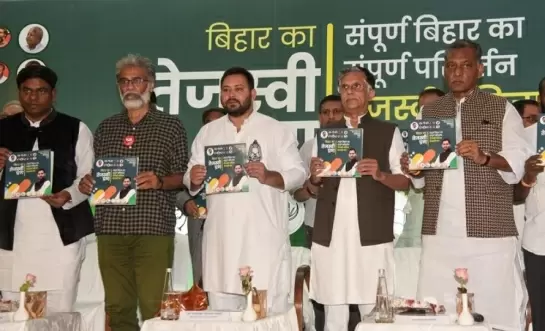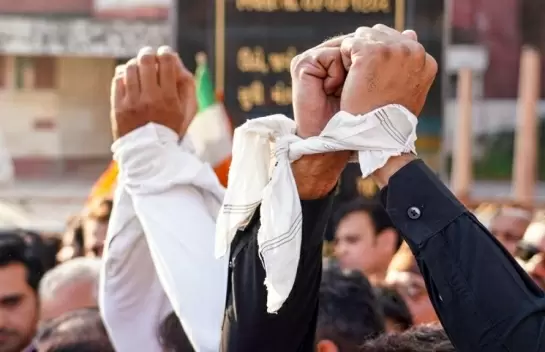3rd OUP South Asia Conclave brings together policymakers, bureaucrats, academicians
11-July-2019
The third edition of the South Asia Conclave by Oxford University Press (OUP) witnessed researchers, policymakers, bureaucrats, academicians and journalists from different spheres attending and debating contemporary ideas that define modern South Asia.
The conclave closely examined the key issues impacting the region, such as political challenges related to ethnic and religious diversity, identity politics, ethnic violence, terrorism, separatism, governance, economic growth, gender consciousness, national security, changes in culture and social structure, as well as the significance of diaspora.
For years now, South Asia has been one of the fastest growing regions in the world. However, this rapid economic growth has been accompanied by income inequalities, education and health inequities, environmental degradation, macroeconomic imbalances - even macroeconomic crises in some cases - and, in general, uneven public service delivery to its citizens.
Following its successful launch in 2017, the South Asia Conclave has become one of the major platforms to talk about issues pertaining to South Asia, and is aimed at developing a deeper understanding of these issues.
The conclave was curated and chaired by Ashutosh Varshney (Sol Goldman Professor of International Studies and the Social Sciences and Professor of Political Science at Brown University), while the insightful welcome note was delivered by Niko Pfund (Global Publisher, Academic Division, Oxford University Press).
The first session was based on the book "The Diary of Manu Gandhi" by Tridip Suhrud, Professor and Director of CEPT Archives, CEPT University, Ahmedabad. The panel was moderated by Ashis Nandy (Indian Political Psychologist, Social Theorist, and Critic).
The focus was on Manuben Gandhi's life - the impact of her life and times with Mahatma Gandhi between the years 1943 and 1948. Manu Gandhi joined Gandhi's entourage in 1943 as an aide to his ailing wife Kasturba in the Aga Khan Palace prison, and remained with him and his family until his assassination.
The second session saw a fruitful discussion on the book, "Line on Fire: Ceasefire Violations and India-Pakistan Escalation Dynamics" by Happymon Jacob, Associate Professor of Diplomacy and Disarmament Studies at the School of International Studies, Jawaharlal Nehru University, New Delhi. The session was moderated by Eswaran Sridharan (Academic Director and Chief Executive, University of Pennsylvania Institute for the Advanced Study of India).
The third session led an insightful discussion based on the title "In Their Own Words: Understanding Lashkar-e-Tayyaba" by C. Christine Fair, Provost's Distinguished Associate Professor, Security Studies Program of Edmund A. Walsh School of Foreign Service, Georgetown University.
The session focused on the aspect of how Lashkar-e-Tayyaba, a jihadist terrorist group, functions in Pakistan and beyond by translating and commenting upon a range of publications produced and disseminated by Dar-ul-Andlus, the publishing wing of LeT.
The fourth session witnessed an invigorating discussion based on the book "Capable Citizens: How India Outsources Justice for Gendered Violence" by Poulami Roychowdhury, Assistant Professor of Sociology, McGill University, Montreal.
The poignant session noted how capacity and capability constructs any kind of narrative around victims and survivors of gendered violence. The panel recollected the heartwrenching case of Bilkis Bano who, being a Muslim woman, had to fight multiple battles and not just along the lines of gender.
The fifth session witnessed a stimulating discussion based on the tittle "Clients and Constituents: Political Responsiveness in Patronage Democracies" by Jennifer Bussell, Assistant Professor of Political Science and Public Policy, University of California, Berkeley.
The conference ended with an enriching note by Ashutosh Varshney. IANS
Messi-Kerala Row: Congress, BJP Allege Financial Irregularities in Stadium Deal
Puzhi Payani: The Lost Tamarind Delicacy of Kanyakumari
Kerala Left Faces Rift as CPI, CPI(M) Clash Over PM SHRI Education Pact
Vijay to Meet Families of Karur Stampede Victims in Mahabalipuram Today
IMD Warns of Heavy Rain in Tamil Nadu and Puducherry as Low Pressure Forms Over Bay of Bengal









